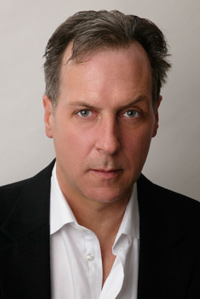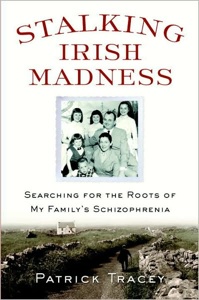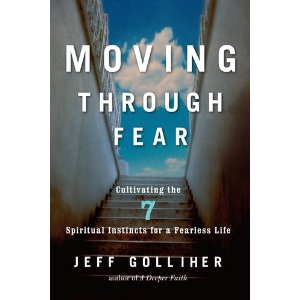
I have something very special planned for the Feast of the Irish, I mean, St. Patrick’s Day! No other than the most famous Irish author writing today: Patrick Tracey, who penned an amazing book, “Stalking Irish Madness Searching for the Roots of My Family’s Schizophrenia,” for which he has won the Ken Book Award from the National Alliance on Mental Illness for “outstanding literary contribution to the understanding of mental illness,” a Slate best book of 2008, and the prestigious PEN New England/L.L. Winship Award for Nonfiction. “Stalking Irish Madness” is a dynamite, compelling read. It’s intriguing, informative, poetic, and captivating. Here is the author to share some of it with us.
Thanks for joining us, Patrick! I so enjoyed your book.
1) Correct me if I’m wrong. You began this search because you have been so devastated by the emotional toll that schizophrenia has already had in your family, which includes two of your sisters, your uncle, your grandmother, your great-great-great grandmother who came over from Ireland. And also because you are afraid to pass the mental illness on to the next generation. I know you are close with your nephew, that he is like a son to you, but have you made a decision not to have children because of the risk of passing the illness on?
Patrick: Yes, I made a point of not having children. And then I kept meeting women who were mad to have them. Or women who were running out of eggs and desperately wanted children. Given my family history, I was not the man.
Not that I would have made a bad father – I think I could be great one – but because I lived with the burden of believing that our bloodline might produce more madness and I could not bear to see another loss. I was on the horn of the same dilemma my mother had been on. Because she saw her own mother and her brother go stark raving mad, and because they were told there was nothing that could be expected to be done about it, my mother decided against having children.

Instead Mom set her sights on a career in the law, inspired by Shakespeare’s cross-dressing Portia from The Merchant of Venice. She was on her way to a high-powered legal career, sans children, and then her head was turned by my father. Dad was set on having his own big Irish Catholic brood. They saw two doctors–a family doctor in Boston who said it ran in families and cautioned against it–and a second specialist in New York that my father found. I’m sure the fix was in, because Dad did roll that way. He knew how to get his way. He talked Mom into having us, and when not one but two daughters, including her baby, stepped into the empty elevator shaft–the change was that dramatic–it killed my mother. She could not handle it. Of course, few could.
They say that genetics loads the gun and environment pulls the trigger. My own feeling is that my mother loaded the gun with her family’s errant gene bank, and my father pulled the trigger with the atmosphere of alcoholism he brought to the table.
Me, I didn’t fall far from the tree. I was behind the door when God was giving out the schizophrenic genes, but I was front and center for the alkie ones. I became a drunk and when I sobered up, finally, I found that the new ex-drunk me was determined to get answers. I was alcoholically clean but I had to get emotionally clean for my sanity.
My travels through Ireland validated many suspicions I had about the high levels of schizophrenia and alcoholism in the Irish and Irish-Americans. The British-fed famine promoted fetal malnourishment that can more than double rates in children. Also older fathers – because you were often 50 before you inherited the potato patch to become eligible – can also more than double rates. Late age of paternity was a direct consequence of the famine. But for me, personally, I could not take the chance because I am no spring chicken myself these days. The clear risk in children of older man was the final nail in the coffin for me. I must get snipped!
So fetal malnourishment and late age of paternity and alcohol abuse form the three legs of my three-legged stool of Irish madness. They didn’t cause it–the underlying susceptibility is there in all of us–but they inflamed it. I promise you.
2) You capture so well the guilt, the reservations, the desires of family members of the mentally ill. Toward the end of your book, you write “Like me, Elaine and Seanna (your two sisters who are not schizophrenic) have spent much time wondering why they got so buried in the storm instead of us. We have a survivor’s hard humor that masks our guilt.” And then a few pages later, you write: “In the end it’s easier just to love Austine (your youngest sister with schizophrenia) than to try to figure her out and get sidetracked into despair.” Again, powerful stuff. So many Beyond Blue readers have mentally-ill loved ones. The guilt and the despair … how do you get passed that?
Patrick: This is the core experience for us: guilt. And that makes us a good object lesson because guilt is always the last defect to get processed. I guarantee you that if you can swim past all the other head gremlins–the anger, the despair, the self pity, the low self worth, the dishonesty and all the other thousand forms of fear that we drink and use on–the last one is guilt. It is the final one that says, why do you even bother? Don’t even try to feel good, because you first have to pay for your worthlessness through some twisted, sacrificial, self-flagellating guilt trip.
Drinking was my own way of whipping my ass every night. I’d get as whipped as I could and then go one drink more. I’d get as out of my mind as I could, swinging hard for the fences, and then I’d put myself out of the park with that last shot at last call to fully inhabit the insanity that missed me but got my two sisters. This was my head space and I truly believe it all stemmed from the feeling that guilt was a useful force in my life. This was all wrong. I had it all backwards. Only a hateful God demands payment in guilt. A loving God asks nothing.
This is an insane voice, not God’s voice, because guilt tells us that love itself is cruel. Love is not. It never condemns, never inflicts, never attacks, never demands, never imposes, never intrudes on unwelcome ground.
Today I see how toxic guilt can be. Today I don’t let it imprison me, but I have to be vigilant. Because of my guilt, this book was the last thing I ever planned to write. But then this gene link was discovered in Ireland and I truly felt “called’ to write it. Still, throughout my journey, it was guilt that lashed me back, a demon voice telling me that I had no right to be looking into this, that I was only throwing my sisters under the bus, and that I should be ashamed of myself for tearing the covers off the family secrets. I am so glad I did not heed that negative voice, because my sisters truly love our story and are so happy that it has been told.
Plus the book has brought us all together, even long lost cousins. It’s afforded us a great re-union and now we want to reach out to the wider Irish family of people and loved ones afflicted with schizophrenia. Now that I’m sober, I am useful. And now that I know that mental wellness is essentially the same for us–a matter of managing the voices in our heads–I can deal. I can draw great strength in my family’s kinship of common suffering and healing.
For one of the most schizophrenic and alcoholic families you’ll ever find, we are a good example of recovery in all its gritty technicolor. We are actually a fun bunch, an absolute riot to be around sometimes. Our humor is our lifeboat, and when we laugh we are never closer to heaven. As the bard said, laugh and the world laughs with you; cry and you cry alone.
There is no denying that the experience of seeing one person after another go mad was devastating for us. Because I did not see it coming, it was like getting hit by a meteor–the devastation felt total and the aftermath permanent and I dealt with the sorrow and the separation mainly by drinking. These days and everyday, I wake up in the morning and close my eyes again to hand it all over. I forgive the world and forgive myself and then go do the best I can do that day. Some days I’m flying high, on others my best prayer is a groan.
3) I love your description of schizophrenia in the beginning of the book: “Schizophrenia is not a case of snapping back and forth between different personalities–a common misconception. Schizophrenia is the hearing of voices, but the hallucinations can be seen, felt, and smelled as well as heard. It’s fright night for life for many, an all-consuming terror that never ends.” Wow. What a description. What do you think the most common misconceptions are about the illness?
Patrick: There’s only one misconception that must be cleared up, and it’s a massive one. There is widespread ignorance about the experience of hearing voices, having verbal or auditory hallucinations, and this is the most common experience of schizophrenia. If we could just start thinking of schizophrenia as hearing voices, then this would clear up a lot of confusion right off the bat. People would begin to understand the experience from the point of view of the person having it.
Unfortunately, our ignorance has been abetted by fear. For so long, the idea of engaging therapeutically with verbal hallucinations has been viewed with boneheaded suspicion. This needs to change. The evidence is in. This one shift in attitude could open the flood gates to healing and recovery.
The correction has been firmly planted in Europe, the first glimmer of hope coming twelve years ago with the beginning of the Hearing Voices Network in Maastricht. Their meetings have since flourished in Europe. For some reason this more opened-minded attitude has taken much longer to reach and root itself in the United States. It will though–it’s absolutely inevitable like all irrepressibly good ideas.
The technique, known as “dialoguing,” was deemed irresponsible, even dangerous, by mainstream psychiatry. Now the ground has shifted beneath psychiatry’s feet and all but the most hidebound are open to the technique of encouraging so-called schizophrenics to dialogue with their voices. This places the key to their recovery within their own hands.
It’s encouraging to see that more and more psychiatrists are open to this kind of treatment. It’s nice to see the big tent attitude replace the tiny teepee. I don’t mind drug therapy and continued research, but to believe that medication is the sole answer requires a desperate poverty of imagination.
At one time, if you came in to see a psychiatrist and complained of hearing voices, he’d say “it’s nothing, take these pills.” I know this to be true from my own family. With my sisters, my uncle and my grandmother – who all have lived in the throes of verbal hallucination – we were told “it’s nothing, take these pills.”
I think we can speak for most families in saying, we don’t mind the pills, if they work, but we do mind the blind indifference to auditory hallucinations. If somebody comes to you with a broken nail, the very last response should be “it’s nothing.”
It’s sad to think that so many lifetimes have been lived on the sharp end of “it’s nothing,” but at least we now live in enlightened times. Even if America has yet to accept the hearing voices movement as warmly as it has been received by our more progressive European cousins, it’s just taking a bit longer. The key thing here is that psychiatry on both sides of the water now see things differently.
Click here to visit Patrick’s website.
* Click here to subscribe to Beyond Blue and click here to follow Therese on Twitter and click here to join Group Beyond Blue, a depression support group. Now stop clicking.

